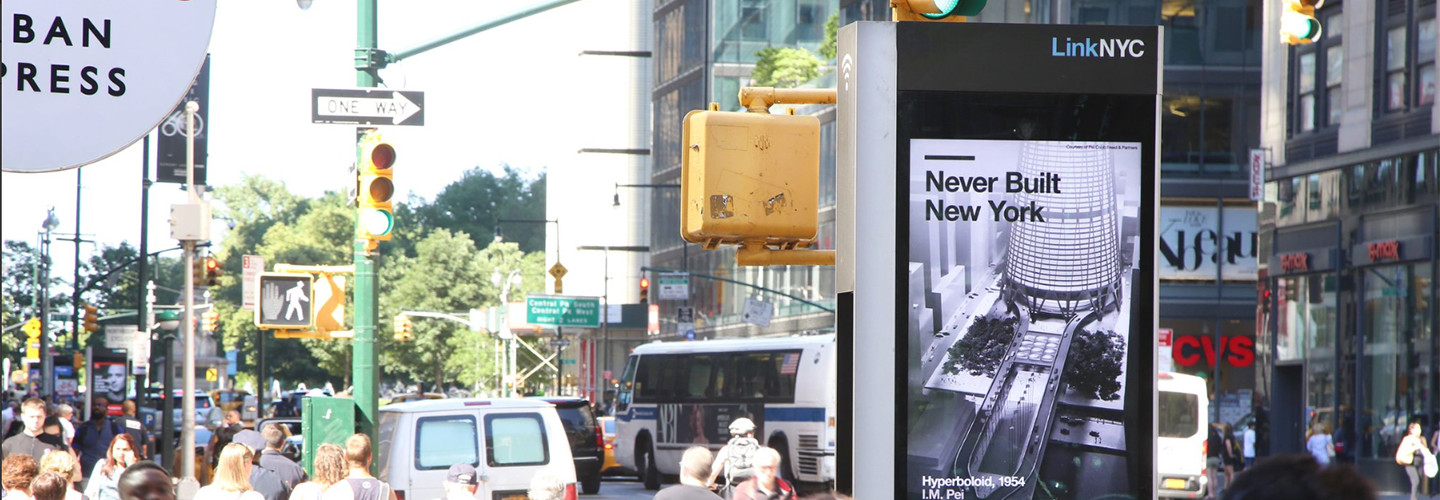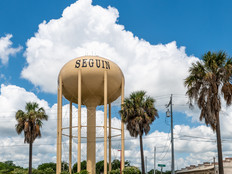Public-Private Partnerships Empower Cities with Dexterity in Emerging Tech
Technology moves fast; government procurement moves slow. Public-private partnerships can help bridge the gap. State and local governments increasingly are looking to leverage the agility of the private sector through creative affiliations, while also trimming the cost of innovative projects.
Three examples help to show how PPPs can help civic officials get to a desired IT endpoint faster and more effectively.
Link NYC Rolls Out Free Wi-Fi Kiosks in New York City
Now in the fourth year of a projected 12-year rollout, Link NYC aims to install more than 7,500 free public Wi-Fi kiosks. The effort brings together the New York City Department of Information Technology and Telecommunications and CityBridge, a consortium of IT firms including Intersection, Qualcomm and CIVIQ Smartscapes.
“The third-party franchisee, CityBridge, was in a position to provide cutting-edge expertise in selling advertising, as well as the ability to build out the private network,” says Andrew Manshel, assistant commissioner of franchise administration for the New York City IT department.
More to the point, the franchisee and the tech partners bear the cost of the project. “We didn’t have to use the limited capital funds that the city has available in order to do this,” Manshel says.
With 1,800 kiosks already installed, Manshel says the secret to a successful PPP lies in both sides understanding their respective roles. “The city steers and the private-sector partner rows,” he says. “That means we set the high standards for the partner to meet, and they execute on those standards. We went in with clear standards for these kiosks, both aesthetic and technological.”
MORE FROM STATETECH: Find out why these eight smart cities are ones to watch!
Kentucky Residents Breathe Easier with AIR Louisville
The city of Louisville, Ky., has a reputation for lousy air quality, with a high incidence of asthma and respiratory distress. With help from a private tech supplier and funding from a national nonprofit, a city-led PPP is looking to change that.
With $750,000 in funding from the Robert Wood Johnson Foundation, medical device maker Propeller Health supplies “smart” asthma inhalers that correlate to location, building a localized database of air quality and health risk. The Institute for Healthy Air, Water and Soil, part of the University of Louisville, helps to analyze the data, with an eye toward identifying high-risk locations and trends around the city.
It took city-sized muscle to bring all the players together. “That is the power of working in the mayor’s office. We could take people who were normally in different silos, all these disparate players, and present them with this shared problem,” says Grace Simrall, Louisville’s chief of civic innovation and technology.
A PPP also offered a unique vehicle for solving a civic problem without spending tax revenues on untried technologies.
“As an innovation office, we are looking for true breakthroughs, which often means using brand-new methods and brand-new data sources. Given that, we don’t want to experiment using the public dollar,” Simrall says.
At the same time, the PPP brought to the table a level of experience the city couldn’t have accessed in-house. “Government should not be expected to have core competencies in everything,” Simrall says. “When you have emerging technologies, we need to rely on private partners. We don’t want to develop a smart medical device when there are companies out there who have done that.”
MORE FROM STATETECH: Get practical IT governance advice from former smart city leaders!
Commuters Travel Smart with Water Street Tampa
In Tampa, Fla., Smart Mobility Manager Vik Bhide would like to leverage the expanding Internet of Things to deliver smart traffic lights, enhanced signage and maybe even autonomous vehicles.
He sees the emerging Water Street Tampa development as an opportunity to do all that. The city is partnering with developer Strategic Property Partners on the $2 billion to $3 billion project, which has backing from Bill Gates’s Cascade Investment. The city also is teaming with the Tampa Hillsborough Expressway Authority to help execute a $21 million grant from the U.S. Department of Transportation to study connected vehicle technology.
The partners all come together via the recently formed Tampa Bay Smart Cities Alliance.
“With smart cities, most solutions delivered to the end user pass through several entities, and it helps to have a place where these entities can coordinate with one another,” Bhide says. “Having an alliance that incorporates most of these entities — the city, the utilities, the major developers — allows us to streamline services and to bring new solutions to market sooner.”
As envisioned, Water Street will have 9 million square feet of hotel space, along with 3,500 residential units, 1 million square feet of cultural and retail space, and 2 million square feet of office space in 18 different buildings.
Ultimately, Bhide describes the PPP as the logical expression of the interconnected realities underlying smart city technology. “The reason we need the partnerships is because the end user straddles everybody’s business in consuming these newer smart-city services,” he says. “The partnership creates a circular value proposition, using public infrastructure and private data to deliver a better service.”








